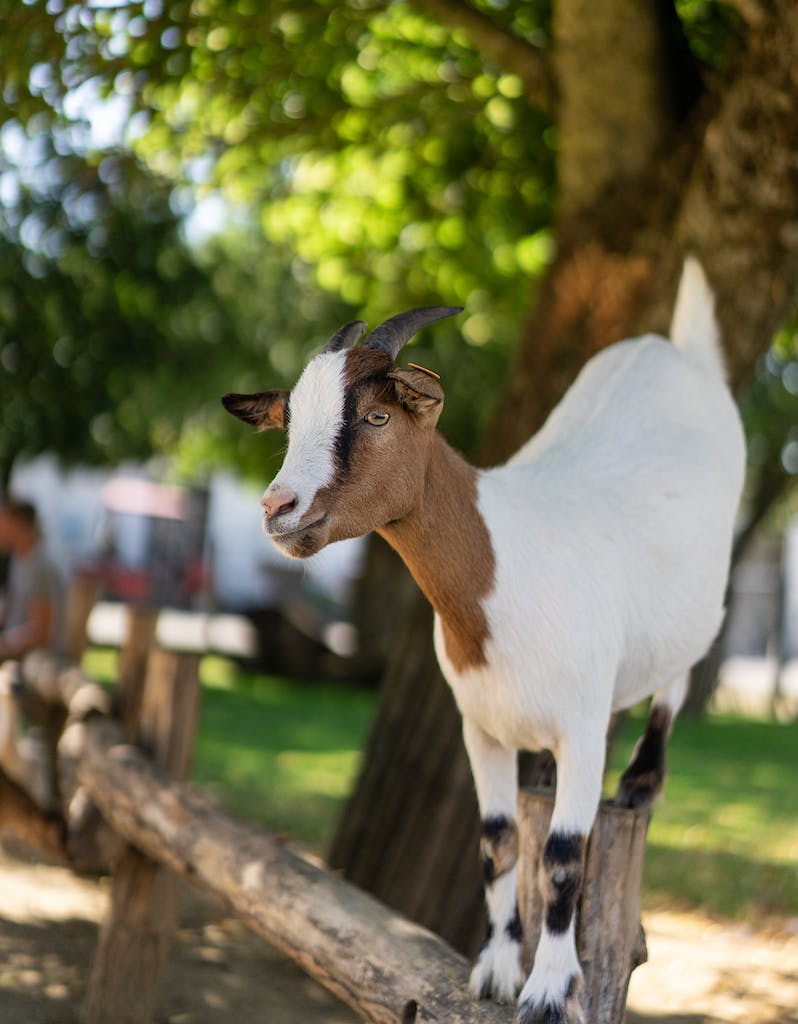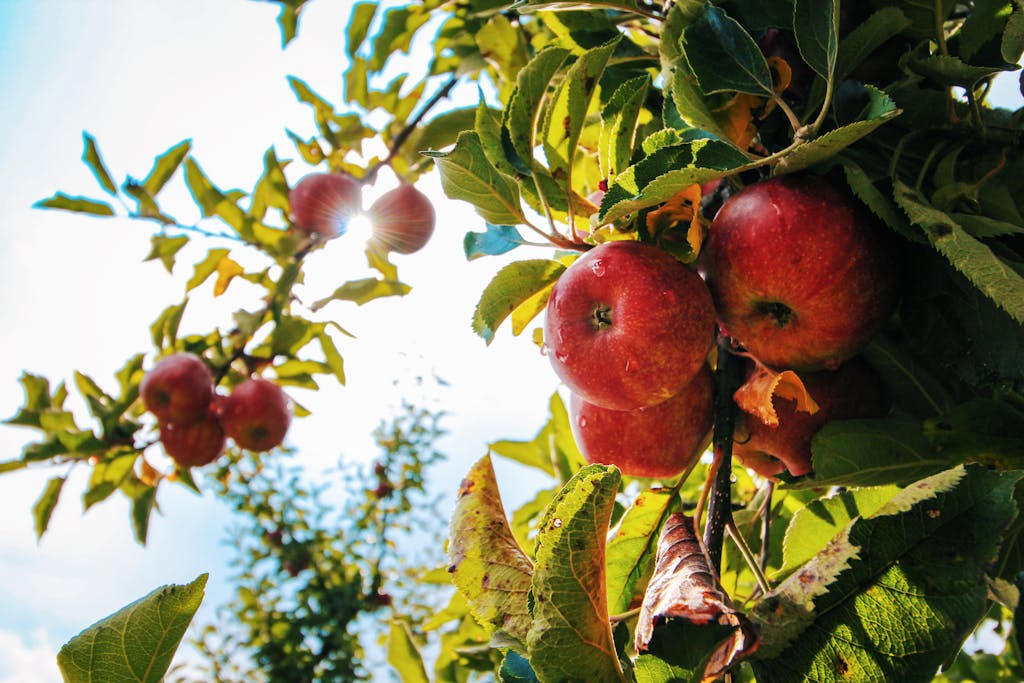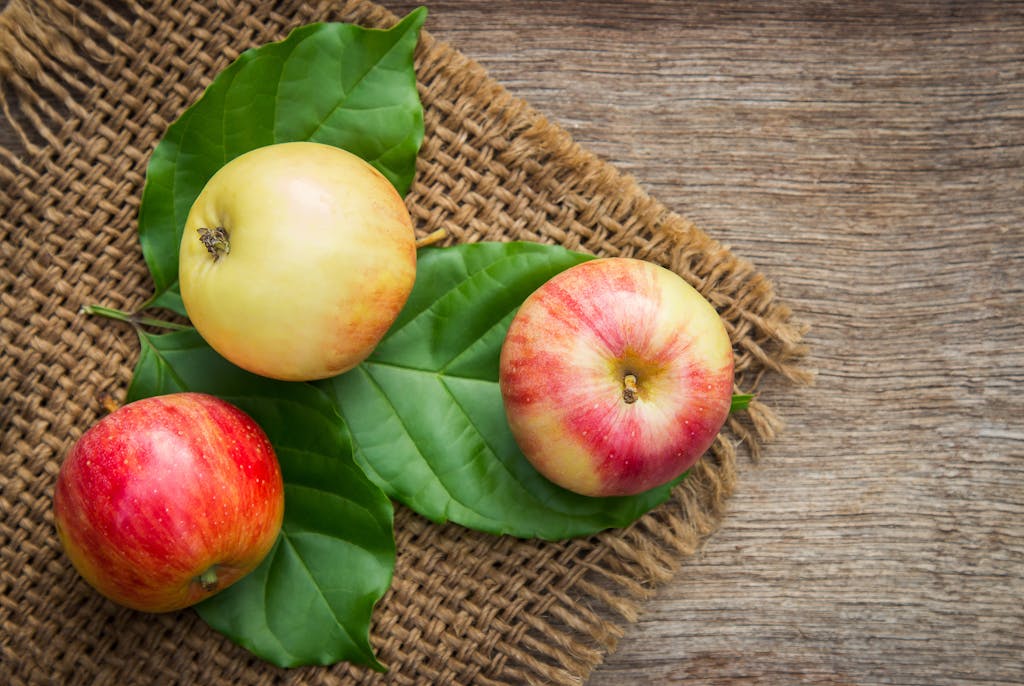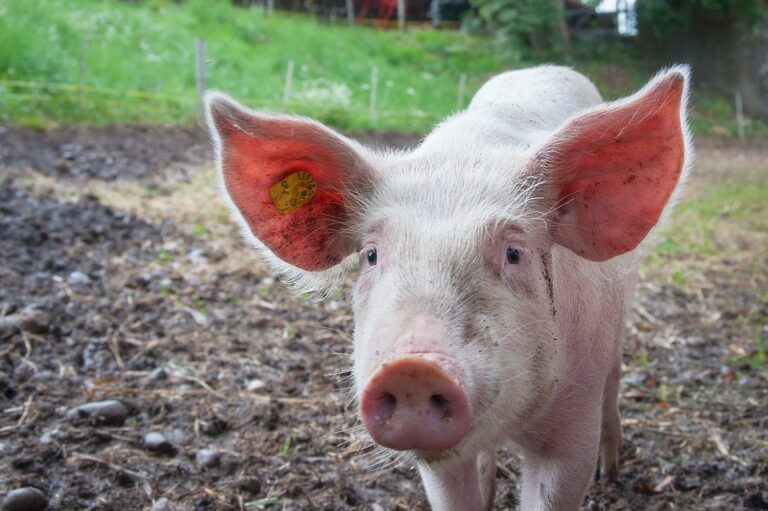Can Goats Eat Apples? A Comprehensive Guide to Feeding Apples to Your Goats
Can goats eat apples? This is a common question among goat owners and those who are considering adding goats to their homestead. The answer is yes, goats can eat apples. In fact, apples can be a healthy addition to a goat’s diet when given in moderation.
Apples are a good source of vitamins and minerals such as vitamin C and potassium, which can benefit a goat’s overall health. Remember that apples should not make up the majority of a goat’s diet as they are high in sugar and can cause digestive issues if consumed in excess. It is recommended to limit the amount of apples given to goats and to always provide a balanced diet of hay, grains, and other fresh fruits and vegetables.
In addition to being a healthy treat for goats, feeding them apples can also be a fun way to bond with your animals. Many goats enjoy the taste and texture of apples and will eagerly eat them out of your hand. Just be sure to remove any seeds or stems before feeding as they can be harmful to goats. While goats can eat apples do so in moderation and as part of a balanced diet.

Nutritional Benefits of Apples for Goats
If you’re wondering whether or not goats can eat apples, the answer is yes! Apples are a great addition to a goat’s diet, and they come with many nutritional benefits. Here are some of the reasons why apples are a great snack for your goats.
Vitamins and Minerals in Apples
Apples are packed with vitamins and minerals that are essential for your goat’s health. They contain vitamin C, which helps boost the immune system and promotes healthy skin and coat. Apples also contain potassium, which is important for maintaining healthy muscles and regulating blood pressure. In addition, apples contain small amounts of other important nutrients such as calcium, iron, and magnesium.
Fiber Content and Digestive Health
One of the biggest benefits of feeding apples to your goats is the fiber content. Apples are high in fiber, which is important for maintaining a healthy digestive system. Fiber helps keep the digestive tract moving and prevents constipation. It also helps regulate blood sugar levels and can even help lower cholesterol.
When feeding apples to your goats, it’s important to remember to feed them in moderation. While apples are nutritious, they are also high in sugar. Too much sugar can lead to digestive upset and other health problems. As a general rule, you should limit your goat’s apple intake to no more than a few slices per day.
Apples are a nutritious and tasty snack for your goats. They are packed with vitamins and minerals, and the high fiber content makes them great for maintaining a healthy digestive system. Just remember to feed them in moderation to avoid any potential health problems.

Potential Health Risks
If you are considering feeding apples to your goats be aware of the potential health risks associated with this treat. While apples can be a healthy and nutritious addition to your goat’s diet, there are a few things to keep in mind to ensure their safety.
Toxicity of Apple Seeds
One of the main concerns with feeding apples to goats is the toxicity of apple seeds. Apple seeds contain a substance called amygdalin, which can break down into hydrogen cyanide when ingested. While the amount of amygdalin in apple seeds is relatively small, it can still be harmful to goats if consumed in large quantities.
To avoid any potential issues, it is recommended to remove the seeds from the apples before feeding them to your goats. If your goats accidentally ingest a few seeds, they will likely be fine, but it is still important to monitor them for any signs of digestive issues or other health problems.
Choking Hazards and Bloat
Another potential risk when feeding apples to goats is choking hazards and bloat. Apples are relatively high in sugar and can cause digestive issues if consumed in large quantities. If your goats eat too quickly or do not chew their food properly, they may be at risk for choking or developing bloat.
To minimize these risks, it is recommended to cut the apples into small pieces and feed them in moderation. It is also important to monitor your goats after feeding them apples to ensure they are not experiencing any digestive issues or discomfort.
Pesticides and Chemicals on Apple Skin
Be aware of any pesticides or chemicals that may be present on the skin of the apples. While washing the apples can help remove some of these substances, it is still possible for your goats to be exposed to harmful chemicals.
To reduce this risk, it is recommended to only feed your goats organic apples or apples that have been thoroughly washed and peeled. This will help ensure that your goats are not exposed to any potentially harmful substances.
While apples can be a healthy and nutritious treat for your goats be aware of the potential health risks associated with feeding them. By following these tips and feeding apples in moderation, you can help keep your goats happy and healthy.
Feeding Guidelines
How to Safely Introduce Apples to a Goat’s Diet
Goats can eat apples, but as with any new food, it’s important to introduce it slowly and in moderation. Start by offering a small piece of apple and observe your goat’s reaction. If they seem to enjoy it and don’t experience any digestive issues, you can gradually increase the amount over time. However, if your goat shows signs of discomfort or diarrhea, it’s best to discontinue feeding apples altogether.
It’s also important to note that not all apples are created equal. Avoid feeding your goat rotten or moldy apples, as they can cause digestive issues and even make your goat sick. Stick to fresh, ripe apples and remove any seeds or stems before offering them to your goat.
Appropriate Portions and Frequency
While goats can enjoy apples as a treat, they should not make up a significant portion of their diet. Apples are high in sugar and can cause health issues if fed in excess. As a general rule, limit your goat’s apple intake to a few small pieces per day, and make sure they have access to plenty of hay, grains, and water to maintain a balanced diet.
It’s also important to keep in mind that apples should be considered an occasional treat, rather than a regular part of your goat’s diet. Goats are natural foragers and thrive on a diet of pasture grasses and other forage. While it’s okay to offer them a snack now and then, make sure they are getting the majority of their nutrition from hay and other sources of roughage.
Special Considerations for Different Goat Groups
When it comes to feeding goats, different groups have different dietary needs. Here are some special considerations for baby goats and lactating does.
Dietary Needs of Baby Goats
Baby goats, also known as kids, have different nutritional requirements than adult goats. They need a diet that is high in protein and energy to support their growth and development. In fact, baby goats require twice as much protein and energy as adult goats.
It’s important to provide baby goats with access to their mother’s milk or a milk replacer that is specifically formulated for goats. This will ensure that they are getting the proper nutrients they need to grow and thrive. You can also supplement their diet with hay and grain, but make sure that they are getting enough milk first.
Lactating Does and Nutritional Requirements
Lactating does have increased nutritional requirements because they are producing milk for their kids. They need a diet that is high in protein, energy, and calcium to support milk production and maintain their own health.
Make sure that lactating does have access to plenty of fresh water, hay, and high-quality grain. You can also supplement their diet with mineral blocks or supplements to ensure that they are getting enough calcium and other essential nutrients.
In addition to meeting their nutritional needs, it’s important to keep lactating does healthy to support their immune system and prevent disease. Make sure that they are getting enough exercise and that their living environment is clean and free from parasites.
By providing the right diet and care for baby goats and lactating does, you can help ensure that they grow and thrive.
Alternative Foods and Treats
As a goat owner, you want to make sure that your goat’s diet is well-balanced and nutritious. While goats can eat apples, it’s important to provide them with a variety of foods and treats. Here are some safe fruits and vegetables you can feed your goats, as well as some foods to avoid.
Safe Fruits and Vegetables for Goats
Goats love fruits and vegetables, and they can be a great source of vitamins and minerals. Here are some safe fruits and vegetables you can feed your goats:
- Bananas: Goats love bananas, and they are a good source of potassium and fiber.
- Pears: Pears are a great source of vitamin C and fiber, and they make a tasty treat for goats.
- Watermelon: Goats love watermelon, and it’s a great source of hydration on hot days.
- Grapes: Grapes are a good source of antioxidants, and goats love them as a treat.
- Peaches: Peaches are a good source of vitamin C and fiber, and goats love the sweet taste.
- Oranges: Oranges are a good source of vitamin C, and goats love the juicy pulp.
Foods to Avoid in a Goat’s Diet
While goats can eat a variety of foods, there are some foods that you should avoid feeding them. Here are some foods to avoid in a goat’s diet:
- Chocolate: Chocolate contains theobromine, which can be toxic to goats.
- Cherries: Cherries contain cyanide, which can be toxic to goats.
- Foods high in carbohydrates: Goats have a sensitive digestive system, and foods high in carbohydrates can cause digestive issues.
- Foods high in sugar: While goats love sweet treats, foods high in sugar can cause health problems such as obesity and tooth decay.
It’s important to provide your goats with a well-balanced diet that includes a variety of foods and treats. By following these guidelines, you can ensure that your goats stay healthy and happy.



